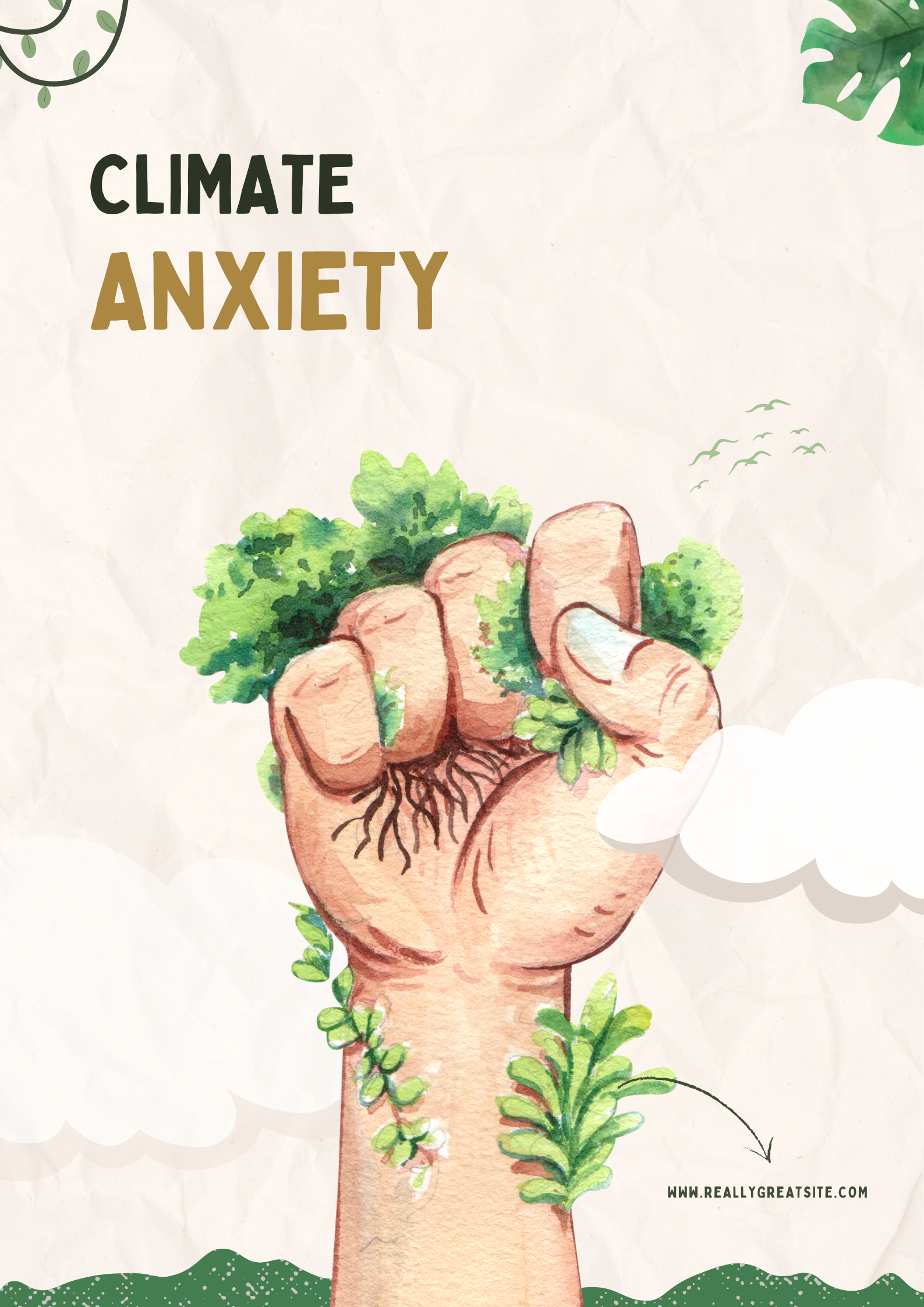Climate Change is a threat whose impact can be felt not just on the environment and our ecosystem but also on our mental health. As the youth of today are getting exposed to more knowledge about Climate Change, its threats and the policy action and the lack of it, they are becoming the most affected age group as far as Climate anxiety and Eco-Anxiety are concerned.
As per a survey done by Lancet in 10 countries, 75% of people (aged 16-25) thought that their future was frightening. Youth is generally about optimism and looking forward but when one sees the increasing frequency of instances of wildfires, storms, floods, increasing temperatures etc., it leads to disappointment and a sense of hopelessness. While this kind of anxiety also leads to changing consumption patterns based towards more sustainable ways of living, big and small initiatives for the environment amongst many other steps, the vastness of this phenomenon and the complexity of its effects often leads to this anxiety becoming overwhelming and harmful. This has not been called a medically diagnosable condition yet but experts agree on its increasing relevance, especially amongst young people. The same research talks about people feeling betrayed and wronged by their respective governments. The feeling of an environmental catastrophe nearing humanity is based on a number of factors. The highest percentage of people who feel ‘extremely worried’ come from India, Brazil and Philippines which are also the worst affected countries by Climate Change. Forecasts about rising temperatures, melting polar ice and changing landscapes continuously fuel the anxiety amongst the youth who were looking forward to the same future with high hopes. As per the UN, carbon emissions are expected to rise by 16% by 2030. In order to keep global heating under the internationally agreed limit of 1.5C, this should’ve fallen by half by then. Such developments lead to a feeling of ‘othering’ amongst the youth who also don’t relate to a predominantly aged leadership around the globe.
The youth of today wants to be responsible for its survival. This is why we also see the existence of guilt, shame and helplessness also contributing to the levels of Eco-anxiety amongst this demographic. The inability to be able to find solutions or implement them at a considerable level leads to the youth blaming themselves for the poor state of nature. A largely consumerist culture disconnects the youth from nature but as with all other issues, the burden somehow falls not on the market structure or policies but on the individuals. With Covid-19 hitting humanity hard and the youth witnessing mass death and catastrophe, one can witness the increasing prevalence of pessimism amongst them.
We are fortunate to have some sane young voices take strong initiatives against policy inaction and for the environment. Greta Thunberg, Ridhima Pandey, Xiye Bastida and Isra Hirsi are just a few names who are leading the charge in their respective regions and in whom the young minds are finding their leaders. What is needed, however, is an urgent and widespread initiative to focus on the mental health aspect of climate change, especially on the youth as they know it and it’s a fact that all the coming generations will experience Climate change for their entire lifetimes.







